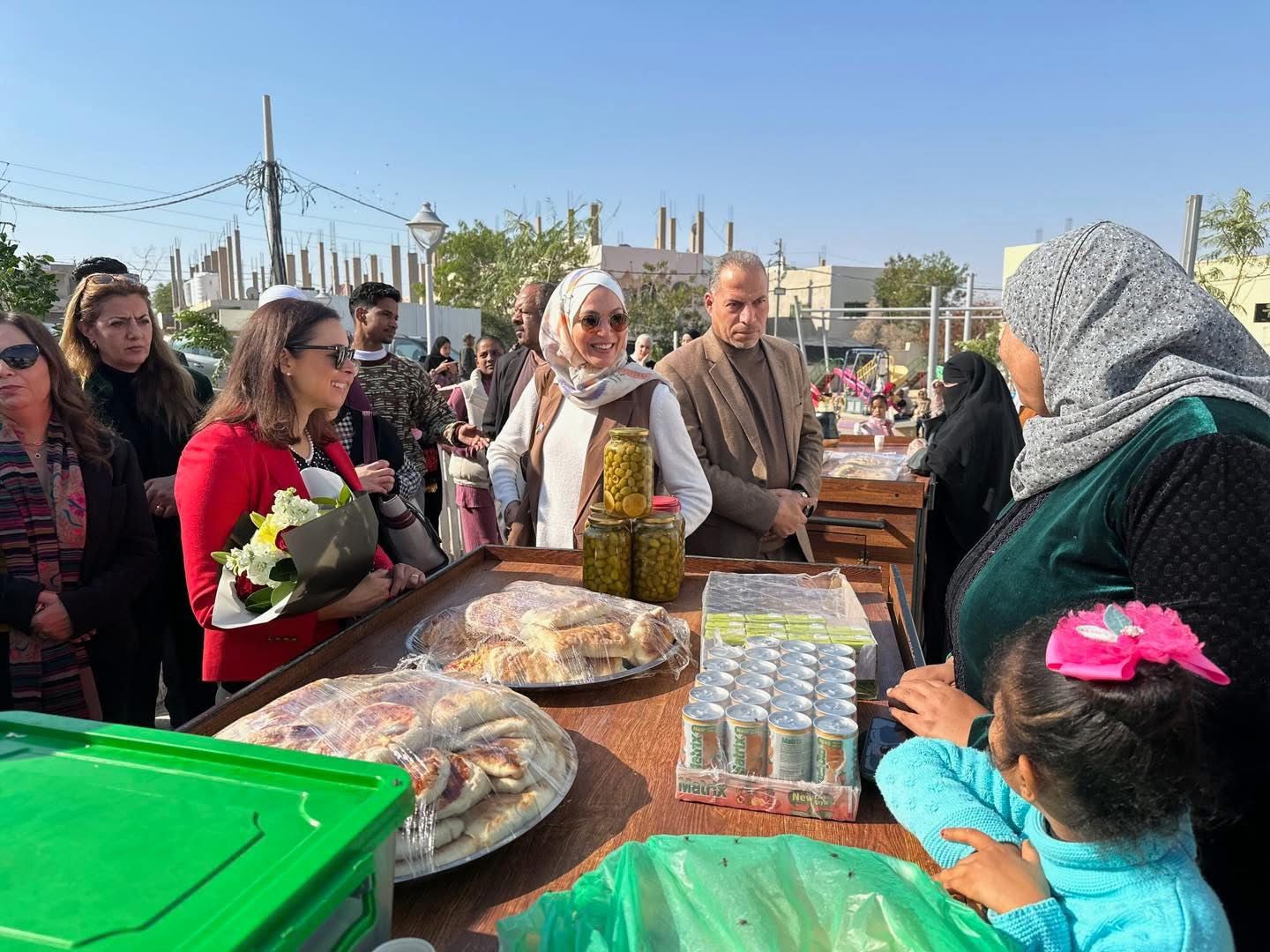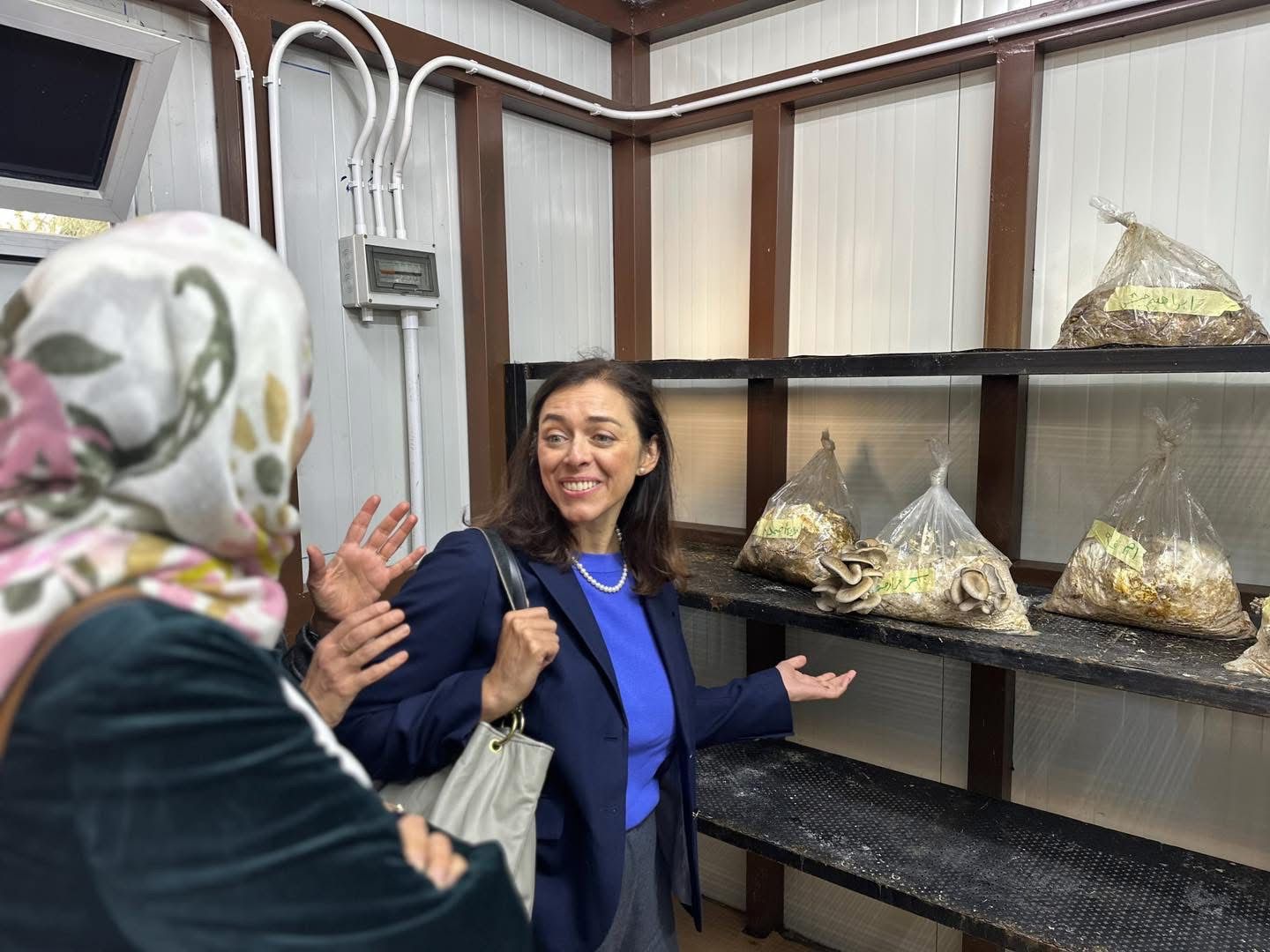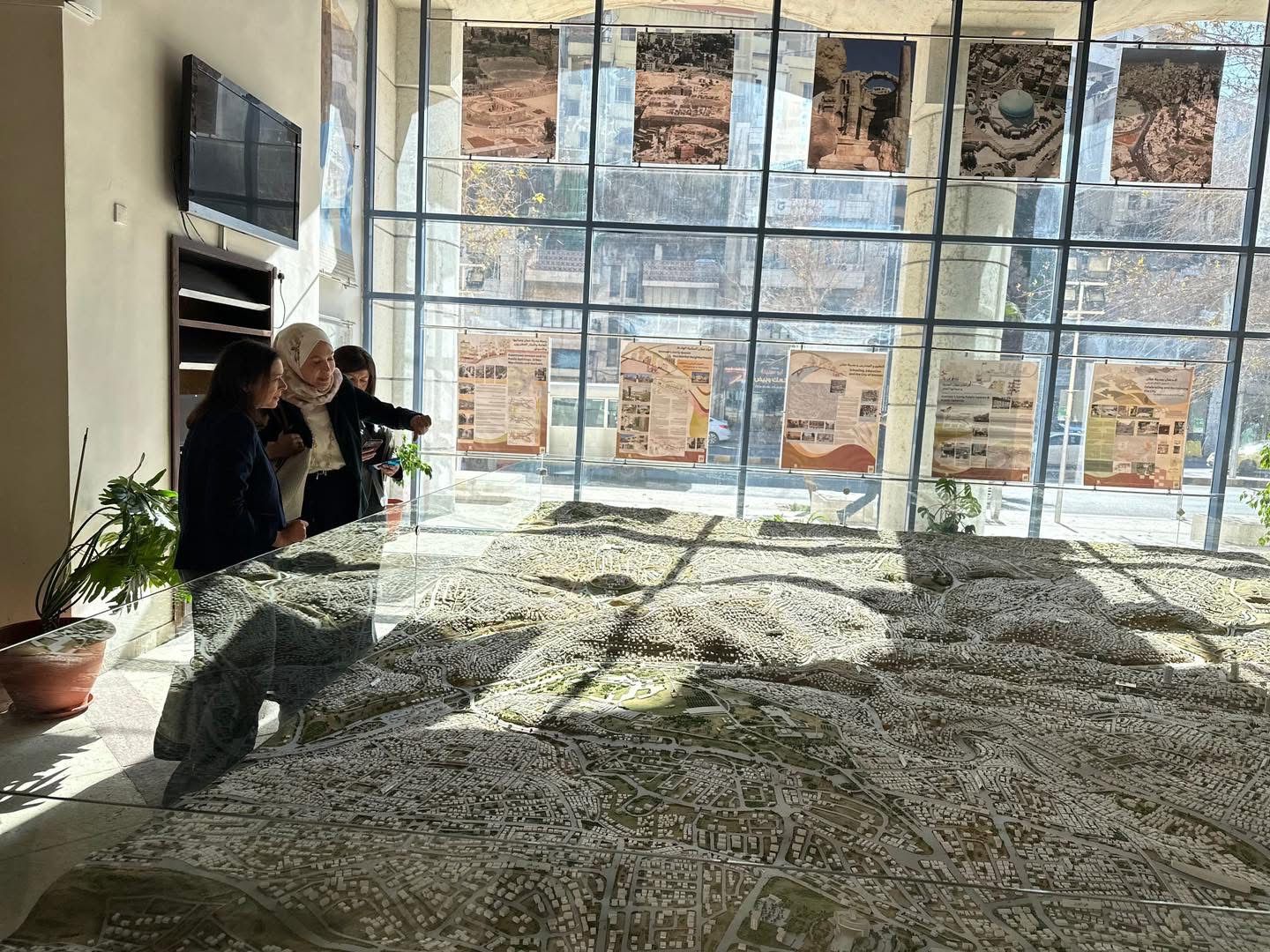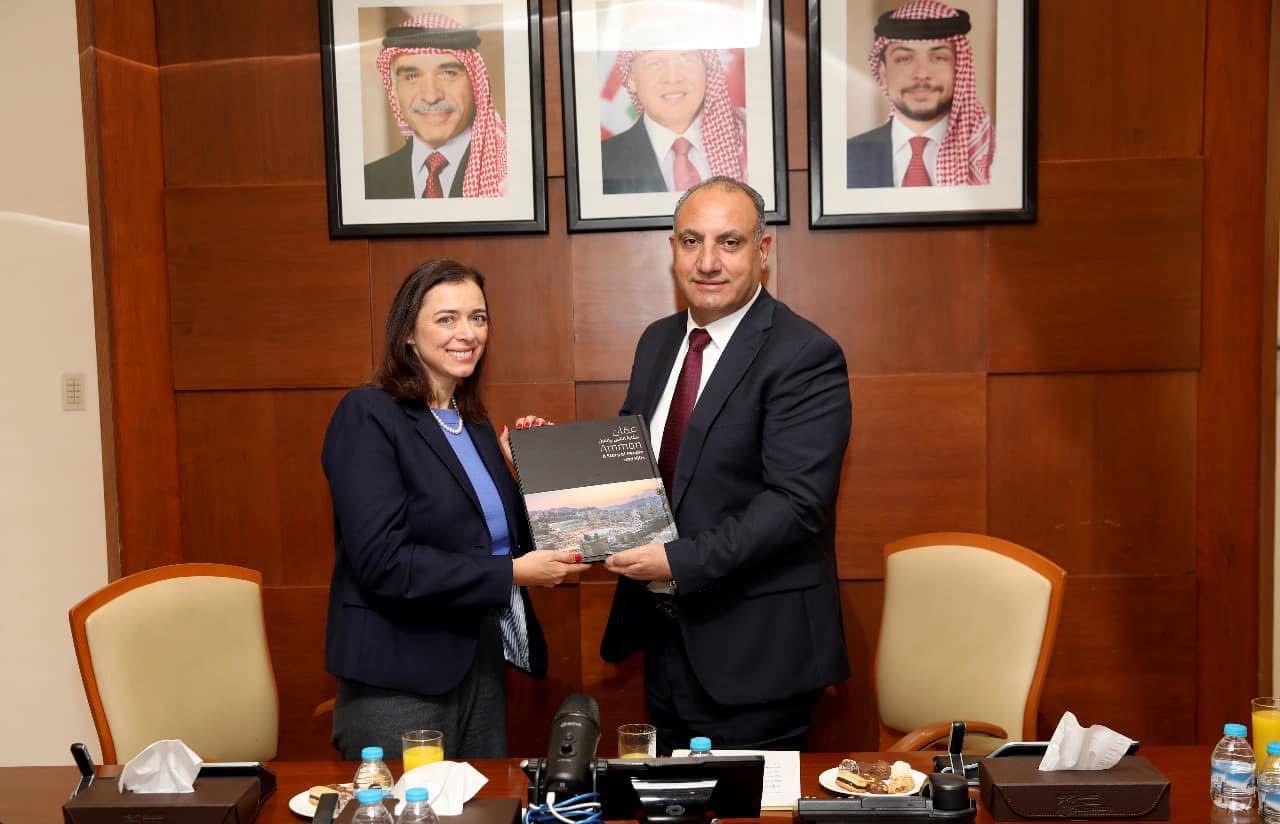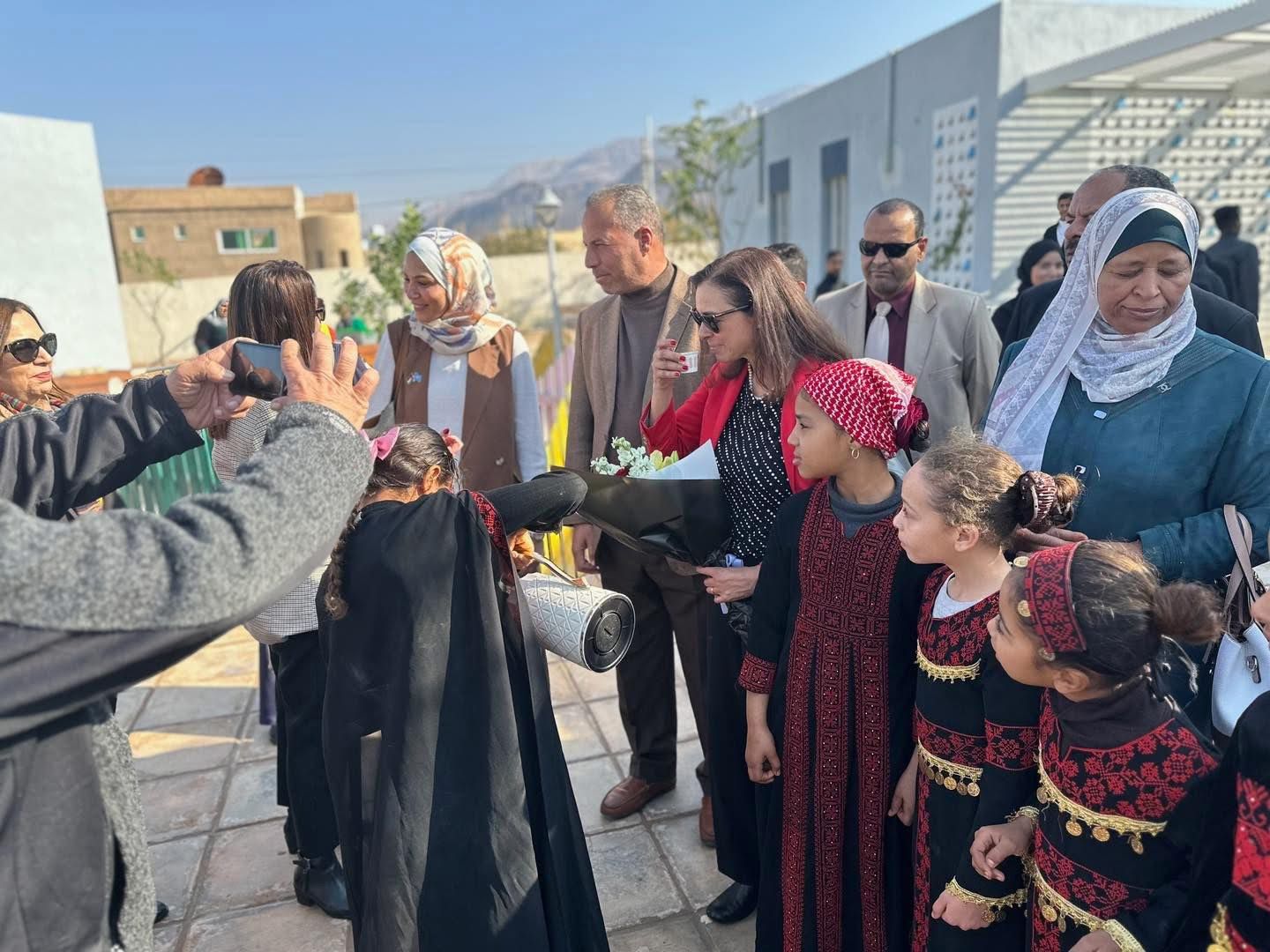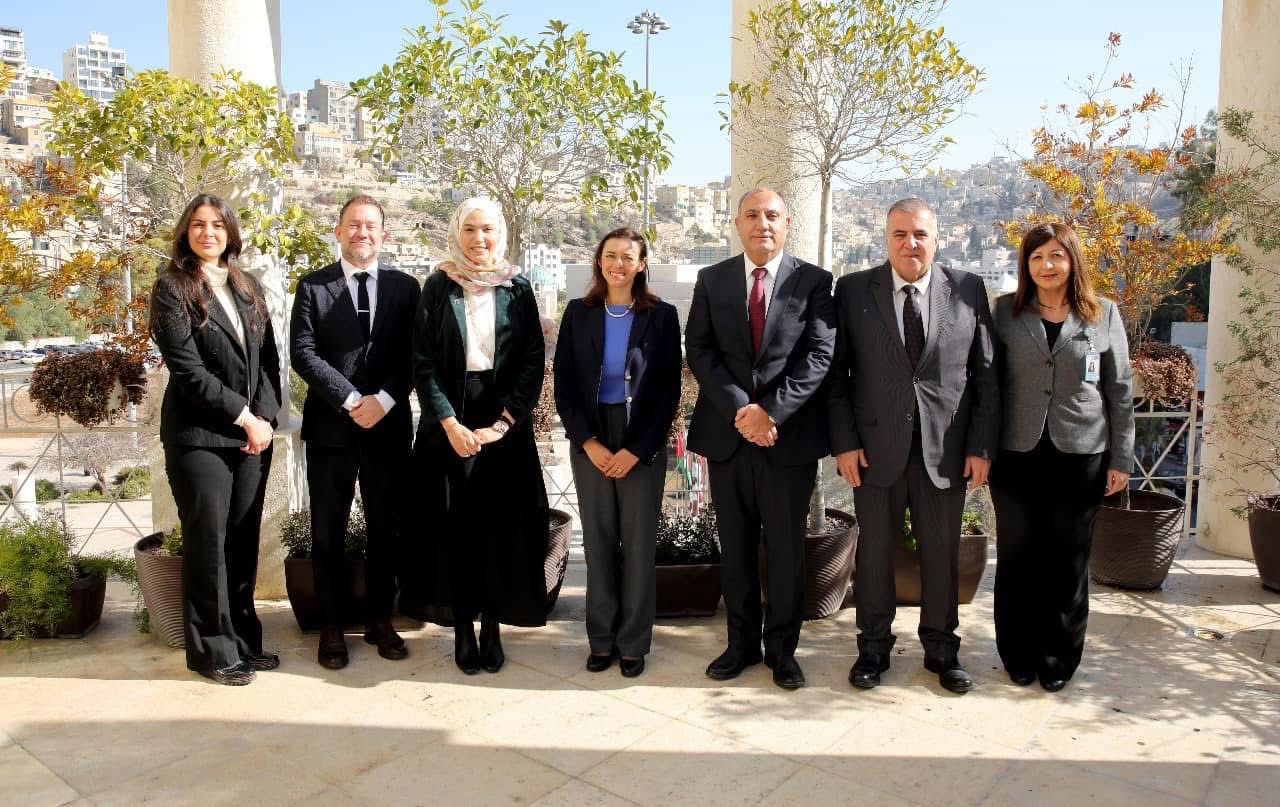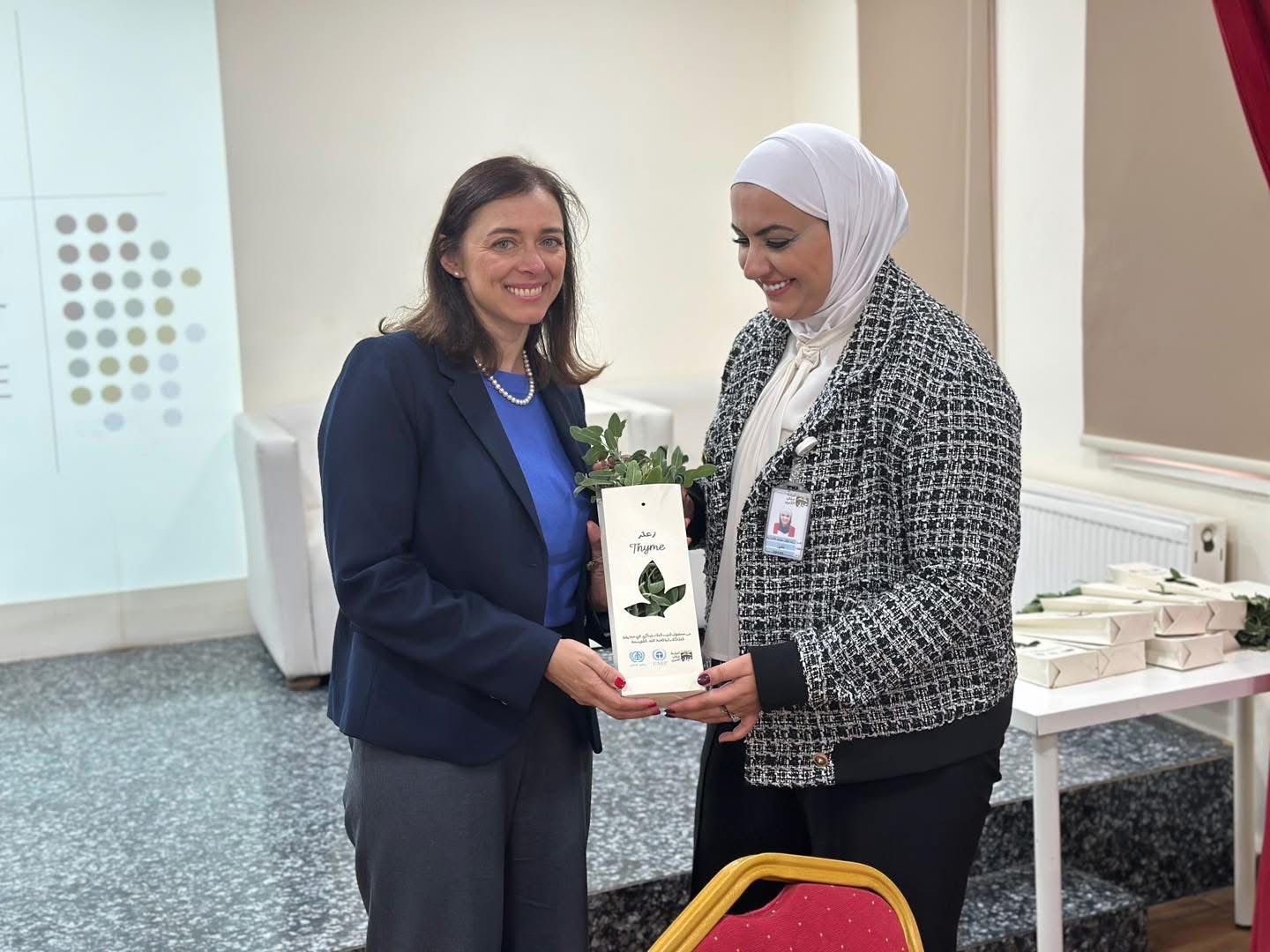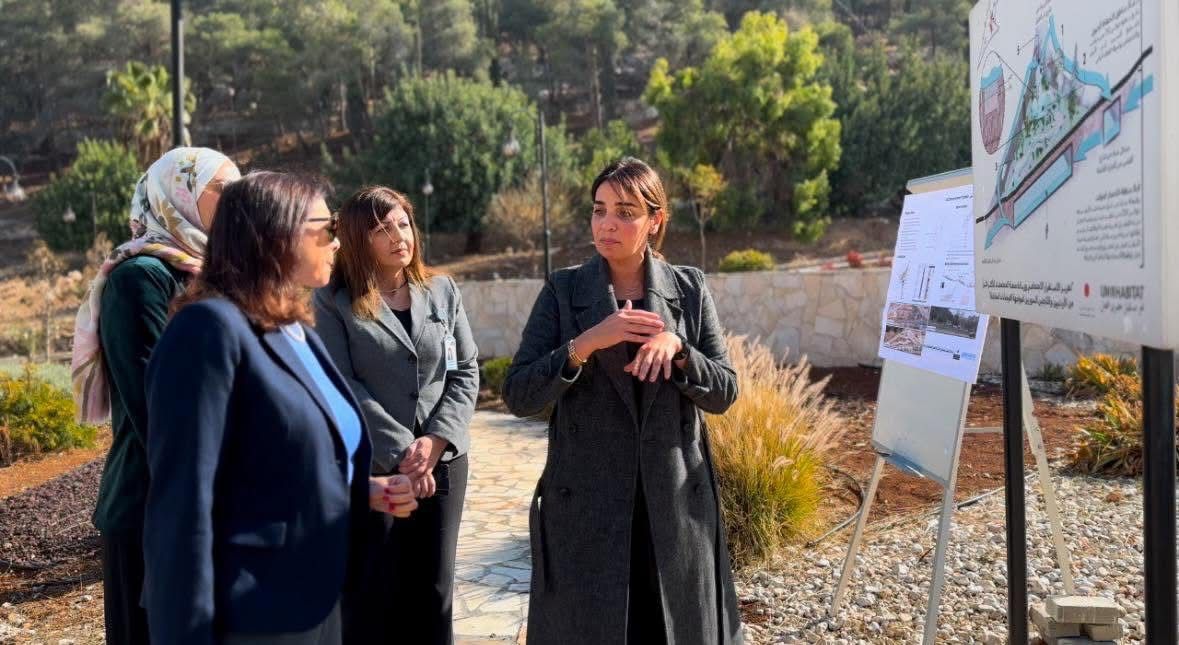The U.S. Permanent
Representative to the United Nations in Nairobi, Mrs. Jennifer Harwood,
concluded her official three-day visit to several UN-Habitat projects in
Jordan, underscoring UN-Habitat's ongoing efforts to advance sustainable urban
development and improve the quality of life for residents.اضافة اعلان
During her visit, Mrs.
Harwood attended a series of meetings with officials and conducted several field
visits to UN-Habitat projects aimed at improving the living conditions of refugees
and host communities.
The visit began with a brief by Ms. Deema Abu
Thiab, the Head of UN-Habitat Jordan Country Programme about UN-Habitat
programme’s work in Jordan.
This was followed by a meeting with His Excellency
Dr. Yousef Al-Shawarbeh, Mayor of Amman, who emphasized the importance of the
strategic partnership between Greater Amman Municipality and UN-Habitat and
briefed Mrs. Harwood on the key achievements of this partnership, including the
development of the first Voluntary Local Review (VLR) in the Arab Region for
the city of Amman and other initiatives that aimed to enhance the city’s
sustainable development and urban resilience.
The mission also
included a field visit to the Al-Zohour Green Triangle Pilot Project in Amman, a
green infrastructure project that was implemented by UN-Habitat with the
support of Government of Japan government.
This pilot has served as a model for
sustainable urban water drainage systems and is currently being scaled up with
the support of the Embassy of the Kingdom of the Netherlands.
Mrs. Harwood additionally
visited Queen Rania Al-Abdullah Park in East Amman, where UN-Habitat established
a community garden featuring sustainable urban agriculture components and met
with local women who benefitted from vocational trainings. Additionally, at
Queen Noor Park in Hashmi Al Janoubi neighbourhood, Mrs. Harwood explored
community-led initiatives implemented by local artists.
Mrs. Harwood has also visited
the rehabilitated Ghor Al-Safi Park and community center, the only safe and
inclusive public space and community center serving Ghor Al Safi and the
surrounding areas. The project, funded by the United Nations COVID-19 Response
and Recovery Multi Partner Trust Fund, aimed to enhance the socioeconomic
empowerment of local women.
During the visit, Mrs. Harwood met with H.E. the Mayor
of the Municipality of the Southern Jordan Valley, the Director of Zaha Culture
Center, as well as local women and youth who have benefited from implemented
interventions, training programs, and support to their small businesses.
As part of the “Resilient
Water Solutions Against Climate Change in Jordan and Lebanon” regional project,
funded by the Adaptation, Fund Mrs. Harwood got the chance to explore the innovative
irrigation system installed around the Ma’raad Wastewater Treatment Plant in Northern
Jordan, which utilizes treated wastewater. She also visited Jerash University,
where UN-Habitat and partners have implemented a unique permaculture
demonstration site. During her visit,
she met with the university president, who commended the project’s role in
enhancing the quality of education both practically and theoretically.
The visit concluded
with a tour of the Bushra Secondary School for Girls in Irbid, where water
harvesting and greywater treatment systems have been installed to improve water
sustainability and ensure a reliable water supply for school’s facilities.
Ms. Deema Abu Thiab,
Head of the UN-Habitat Jordan Country Programme, remarked: “During this
important visit, Mrs. Harwood had the opportunity to witness the significant progress
of the UN-Habitat programme in Jordan and key achievements made possible through
the support and collaboration of local and national partners”.
At the end of the visit, Mrs. Harwood
expressed her deep appreciation for the work of the UN-Habitat Programme in
Jordan and reaffirmed the importance of continued collaboration to foster a
more sustainable and resilient urban future.
